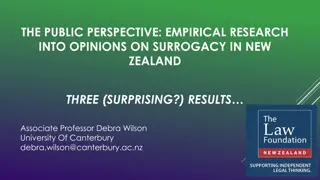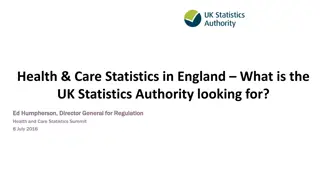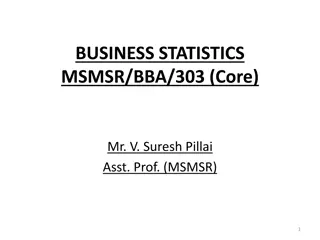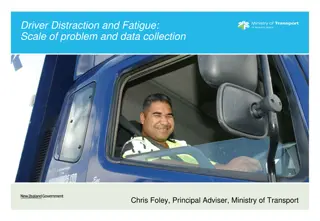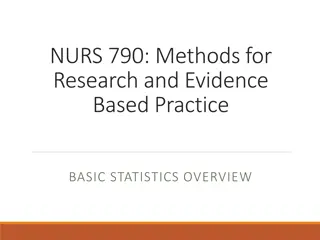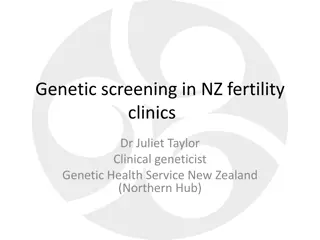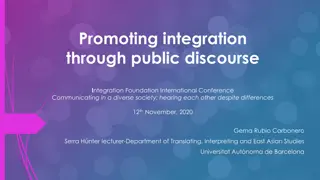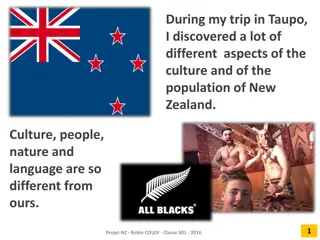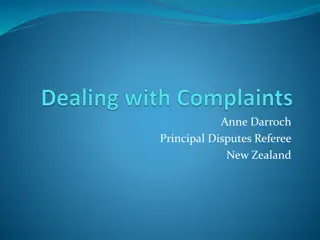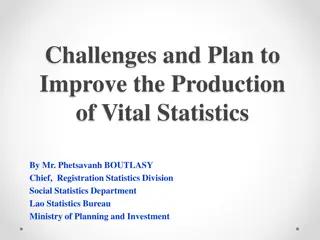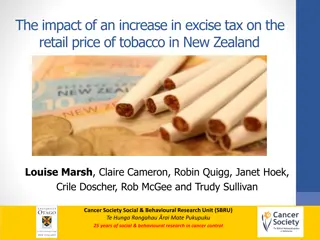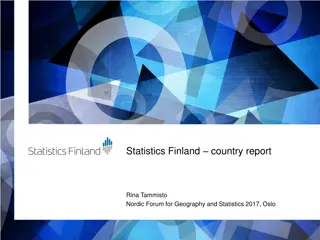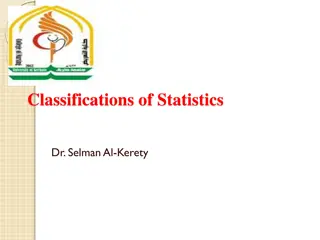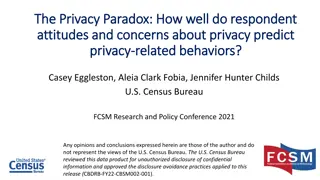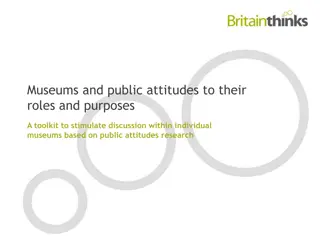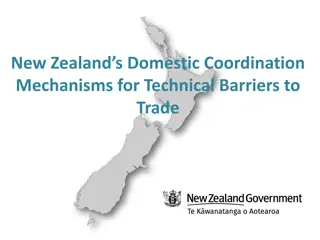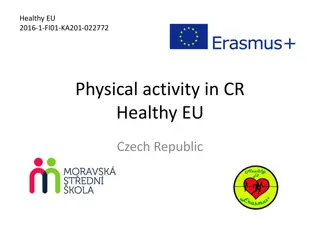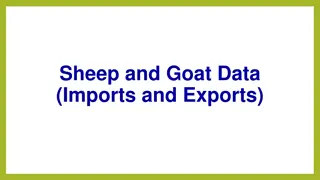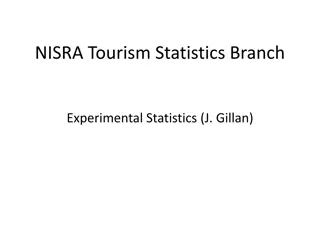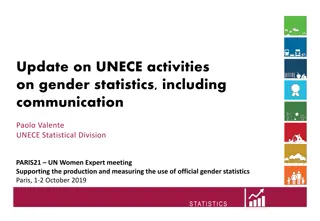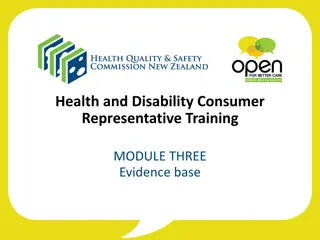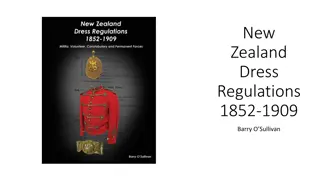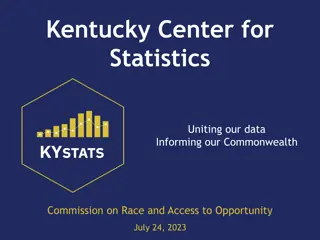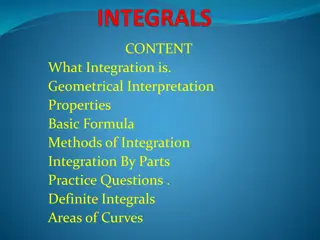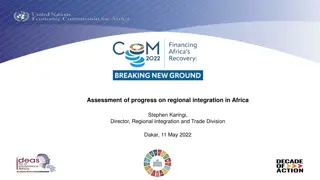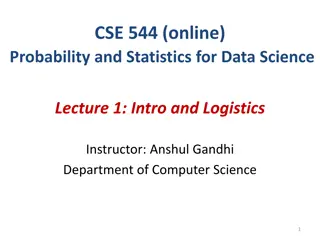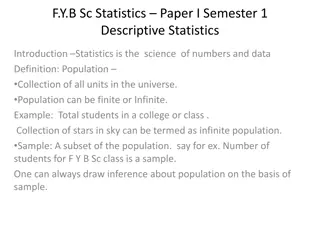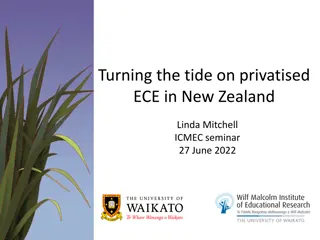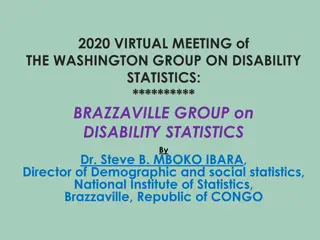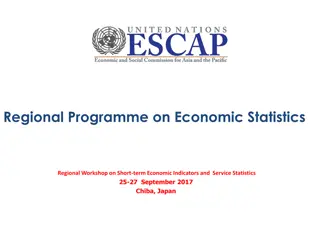Public Attitudes to Data Integration: Insights from Research for Statistics New Zealand
Research conducted by Anna Davison, Jean Beetham, Jared Thomas, Abigail Harding, Vivienne Ivory, and Chris Bowie from Opus International Consultants Ltd in Lower Hutt presents key findings on public attitudes towards data integration. The report highlights the importance of trust in Statistics NZ, outcomes of narrative interviews, appropriate use of data sharing, and the value of aggregate data when used responsibly for societal benefit.
- Data integration
- Public attitudes
- Statistics New Zealand
- Research report
- Opus International Consultants
Download Presentation

Please find below an Image/Link to download the presentation.
The content on the website is provided AS IS for your information and personal use only. It may not be sold, licensed, or shared on other websites without obtaining consent from the author. Download presentation by click this link. If you encounter any issues during the download, it is possible that the publisher has removed the file from their server.
E N D
Presentation Transcript
PUBLIC ATTITUDES TO DATA INTEGRATION Highlight findings from the report prepared for Statistics New Zealand Anna Davison , Jean Beetham , Jared Thomas, Abigail Harding, Vivienne Ivory, and Chris Bowie Opus Research, Opus International Consultants Ltd, Lower Hutt
OVERVIEW OF PRESENTATION Key results of interviews, workshops, online discussion Highlight findings Trust in Statistics NZ Recommendations
NARRATIVE INTERVIEW TOOL The interview schedule was an effective tool: Ice breaker engaging & provided personal context Demonstrated differences between operational and statistical use of integrated data Participants responses were thoughtful: showed appreciation from different perspectives Scenarios generated interesting discussion around acceptability thresholds, benefits, costs, and values
NARRATIVE INTERVIEWS - OUTCOMES Participants considered it extremely important that data is shared with and used by the right people and for the right purpose to provide benefit, rather than harm. Most information has the potential for a positive and negative outcome for different people. It depends who makes the decisions and who has the information
NARRATIVE INTERVIEWS APPROPRIATE USE They felt strongly that information should not be shared with non-Government or private organisations without their consent/permission. You wouldn t want a loan shark setting up in an area where there is a high level of poverty, people won t turn down a pot of gold, but it will be more detrimental to them in the long run
NARRATIVE INTERVIEWS AGGREGATE DATA De-personalised, pooled data was seen as useful, as long as it was used by the right people and was used to have a positive impact for either a particular group of individuals or wider society. I would be happy for the information to be used if it is going to help other parents if it would benefit my child.
ACTION RESEARCH WORKSHOPS THE METHOD The blocks made the DI process more understandable and personal stacking blocks holding blocks close bold moves lots of debate & discussion Lots of questions about how data could be integrated No clear purposeso . participants co-created the why & what and then judged acceptability based on that
ACTION RESEARCH WORKSHOP DATA TYPES Type of data was very important in determining acceptability Normal, routine data Personal, complex, sensitive data They already have that! Too much information!
ACTION RESEARCH WORKSHOP PERSONAL EXPERIENCES Attitudes to data integration can be strongly attributed to personal experiences with and trust in government authorities and statistics Negative experiences Positive experiences data integration may be: unnecessary not useful misused data integration may be used to produce public benefits and increase fairness
ACTION RESEARCH WORKSHOP PRIVACY & SECURITY When workshop participants discussed integrated data being held in a single database and linked to their personal or identifying information they tended to become increasingly less comfortable with statistical data integration. If everything here is in Statistics NZ, if someone hacked it they would know everything about me, and that s scary. That would have to be so secure, otherwise it s too much information they ve got about individuals, it s very powerful. The important thing is how is this confidential information treated? Is it strictly confidential and anonymous or can it be misused?
ACTION RESEARCH WORKSHOP TRANSPARENCY & CONSENT Some participants felt that informed consent should be required for data integration People need to know what s being shared and how it s being used, and why they need that, and that you can say no to having your data integrated
ONLINE CONSULTATION LESSONS Mixed views on short timeframes waffling on vs tight timeframes Rigidity of the tool It was not as interactive as I d expected Development of rapport with other experts Felt very hesitant to edit other people's comments very much. Easier to put in a new comment. Extreme scenarios There were two types of concerns that people raised: privacy concerns and concerns about whether the idea was a good one. It was impossible to overcome or address the concerns But, valuable insights were still found
ONLINE CONSULTATION IMPROVING ACCEPTABILITY Who uses it? What for? How it is protected? Fair Useful Accurate CORE VALUES Some experts felt that DI should only occur if: The public are informed The public find it widely acceptable Valid measure Representative In public interest
ONLINE CONSULTATION LIMITATIONS AND BENEFITS Experts more aware of limitations of administrative data: Lack accuracy, or not be in a convenient form Only capture those who interact with agency Benefits Longitudinal tracking More current, regular, accurate, detailed, and diverse data Better Better decisions and services Better data research and information
DISCUSSION OF FINDINGS Most New Zealanders appear to have a relatively positive perception of data integration by public sector agencies Attitudes to data integration do not appear to be strongly associated with particular types of social groups Acceptability of data integration appears to be largely influenced by the individual s own personal experiences There also appears to be a more general value-based concern around appropriate use
TRUST IN STATISTICS NEW ZEALAND AS A DATA CUSTODIAN Most of the research participants had a very high level of trust in Statistics New Zealand as a professional, competent, and trustworthy custodian of data. I don t have a problem bearing in mind it s going to statistics and it s not shared, and no one else gets access to it. Statistics NZ need to change their name, and it may change their attitude, and portray a better, a more engaging type of response. Stats to me are scary, but if they could encompass wellbeing, I m sure people would be more responsive.
RECOMMENDATIONS Statistics NZ could consider providing positive messaging around data integration to ensure they retain and gain the trust of the New Zealand public Reassure of security, confidentiality, & privacy Demonstrate need, value, & public benefits, particularly around statistical data Consider offering the option to opt in/out of DI where personal, sensitive, or complex data is being used
DATA INTEGRATION ACCEPTABILITY THRESHOLDS Less acceptable More acceptable Ambiguous & general Purpose Transparent & specific need Insecure Security Secure Open access Access Strict restrictions, procedures & protocols Confidential/ anonymous Public/ personalised Privacy Private Interests Public Subjective & biased Data & metrics Representative & meaningful Unfair & harmful Outcomes Fair & beneficial
THANK YOU We would like to thank the research participants who generously gave their time and energy to take part in this study. Contact: Jared Thomas | Behavioural Research Manager Opus Research, Opus International Consultants Ltd jared.thomas@opus.co.nz 027 244 8574 | 04 587 0675


